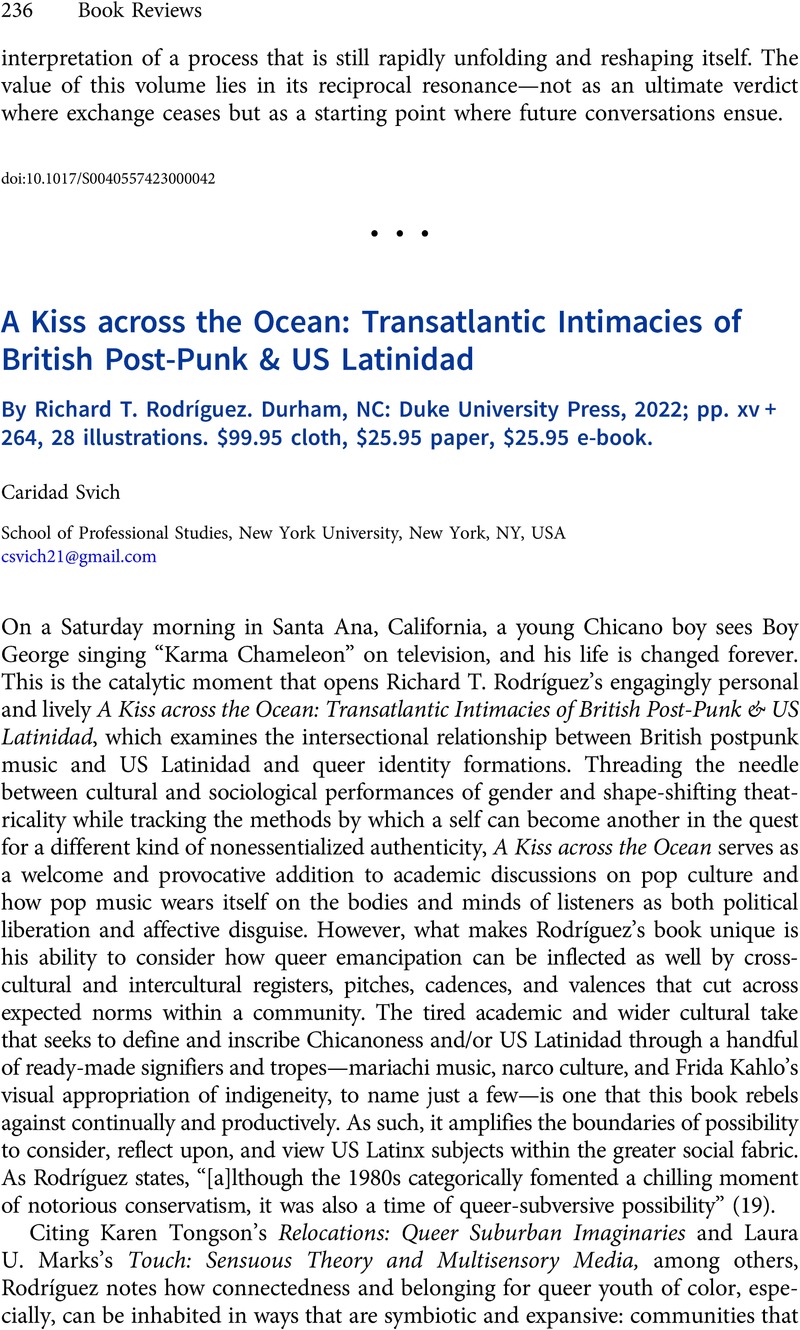No CrossRef data available.
Article contents
A Kiss across the Ocean: Transatlantic Intimacies of British Post-Punk & US Latinidad By Richard T. Rodríguez. Durham, NC: Duke University Press, 2022; pp. xv + 264, 28 illustrations. $99.95 cloth, $25.95 paper, $25.95 e-book.
Review products
A Kiss across the Ocean: Transatlantic Intimacies of British Post-Punk & US Latinidad By Richard T. Rodríguez. Durham, NC: Duke University Press, 2022; pp. xv + 264, 28 illustrations. $99.95 cloth, $25.95 paper, $25.95 e-book.
Published online by Cambridge University Press: 19 April 2023
Abstract
An abstract is not available for this content so a preview has been provided. Please use the Get access link above for information on how to access this content.

- Type
- Book Reviews: Edited by Chrystyna Dail and Donovan Sherman, with Sofia Ohrynowicz
- Information
- Copyright
- Copyright © The Authors, 2023. Published by Cambridge University Press on behalf of American Society for Theatre Research, Inc.


